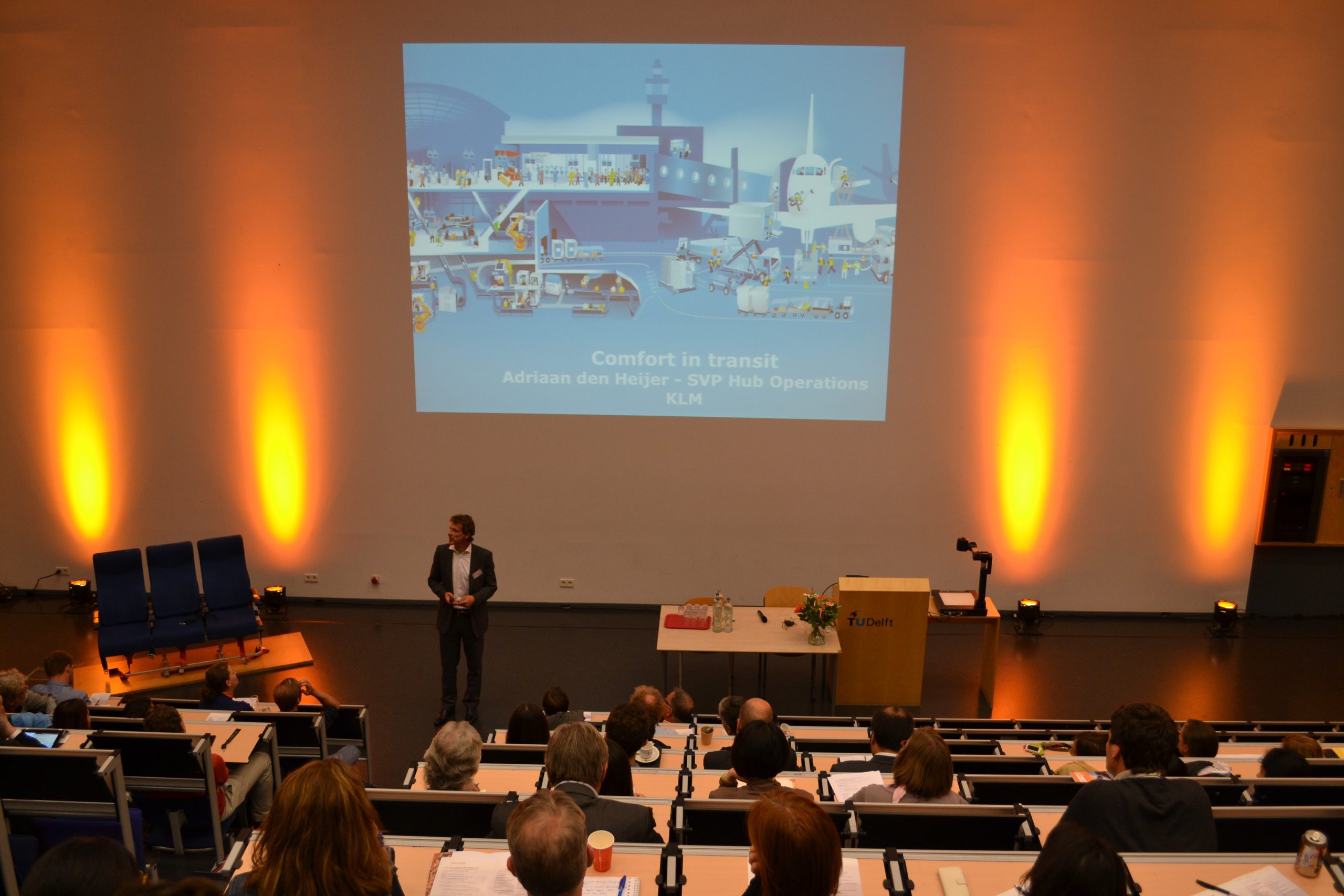The Faculty of Industrial Design Engineering played host to the Comfort in Transit Symposium on June 4, 2014.
The conference was held in honor of the inaugural lecture of Peter Vink, Professor of Environmental Ergonomics at TU Delft.
Boeing Differentiation Strategy Director Blake Emery and KLM Hub Operations Senior Vice President Adriaan den Heijer were among the keynote speakers during the event. Researchers from BMW, Zodiac Aerospace and several academic institutions were also present to discuss the various technical and user experience design issues relevant to the commercial airline and automobile industries.
A common thread among the presentations was the role of customer feedback in the overall design process. In order to ensure optimal customer satisfaction, airlines and aircraft manufacturers are in constant dialogue with their passengers. Through extensive research, industrial designers are able develop innovative design solutions to improve passenger comfort and in-flight experience.
“Everyone always says the same thing,” claims Blake Emery. “They want more room for their legs.” According to Boeing’s research findings, the ideal in-flight experience for economy class passengers is when the seat next to them is vacant and when they are able to sleep throughout the flight. “That’s a really good way of saying, ‘we don’t want to experience your product,’” Emery says. As a result, Boeing has implemented a customer-centric approach to the design of their 787 Dreamliner cabin interior.
At the same time, KLM is looking to improve passenger experience prior to boarding the aircraft. “We know that the airport is still the most stressful event in the total journey of the traveler,” says Adriaan den Heijer. “We try to stimulate as much as possible that passengers are well prepared, [beginning] at home.” In cooperation with Amsterdam Schiphol Airport, KLM is investing in service design solutions to create the most reliable, innovative and hospitable airport experience in Europe.
Given the rising popularity of low-cost airlines, it appears that fewer customers are prioritizing comfort over cost, particularly for short-haul flights. Nevertheless, the accumulation of negative customer experiences may be damaging to an airline’s reputation. “I don’t believe that it’s all about expenses,” says IDE student Eleonora Ibragimova. “From my own experience, there were times when flights were cancelled or the flight attendants were impolite. These factors add up to your experience.” Ibragimova is convinced that customers ultimately value the quality of comfort and service more than the actual costs.



Comments are closed.